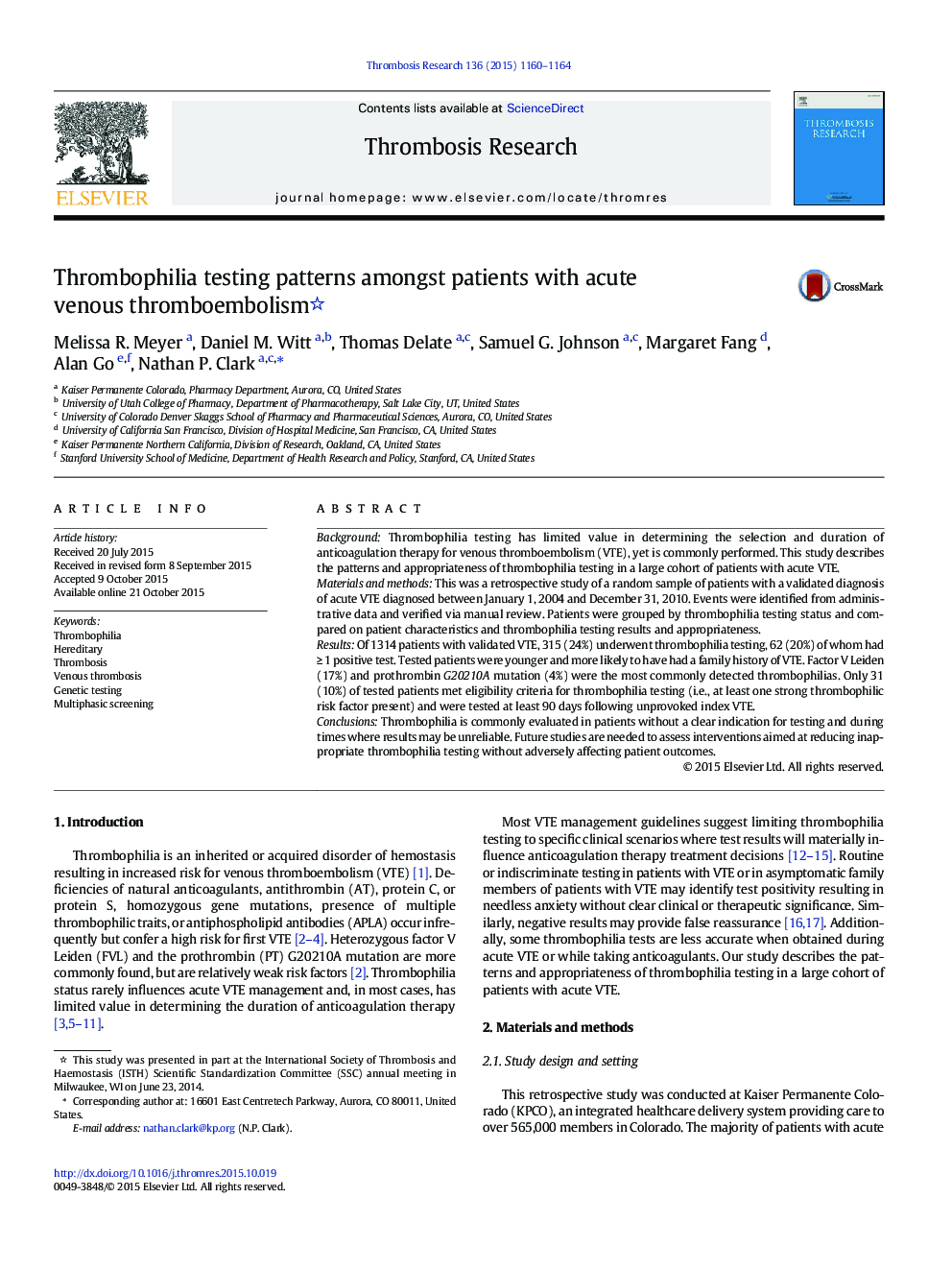| کد مقاله | کد نشریه | سال انتشار | مقاله انگلیسی | نسخه تمام متن |
|---|---|---|---|---|
| 6001010 | 1182942 | 2015 | 5 صفحه PDF | دانلود رایگان |
- Thrombophilia testing occurred in 24% of patients with VTE in this study.
- Tested patients often did not have an indication for a thrombophilia workup.
- Testing was frequently performed during times where results were unreliable.
- Thrombophilia results did not appear to influence duration of anticoagulation.
- Methods to decrease inappropriate thrombophilia testing should be explored.
BackgroundThrombophilia testing has limited value in determining the selection and duration of anticoagulation therapy for venous thromboembolism (VTE), yet is commonly performed. This study describes the patterns and appropriateness of thrombophilia testing in a large cohort of patients with acute VTE.Materials and methodsThis was a retrospective study of a random sample of patients with a validated diagnosis of acute VTE diagnosed between January 1, 2004 and December 31, 2010. Events were identified from administrative data and verified via manual review. Patients were grouped by thrombophilia testing status and compared on patient characteristics and thrombophilia testing results and appropriateness.ResultsOf 1314 patients with validated VTE, 315 (24%) underwent thrombophilia testing, 62 (20%) of whom had â¥Â 1 positive test. Tested patients were younger and more likely to have had a family history of VTE. Factor V Leiden (17%) and prothrombin G20210A mutation (4%) were the most commonly detected thrombophilias. Only 31 (10%) of tested patients met eligibility criteria for thrombophilia testing (i.e., at least one strong thrombophilic risk factor present) and were tested at least 90 days following unprovoked index VTE.ConclusionsThrombophilia is commonly evaluated in patients without a clear indication for testing and during times where results may be unreliable. Future studies are needed to assess interventions aimed at reducing inappropriate thrombophilia testing without adversely affecting patient outcomes.
Journal: Thrombosis Research - Volume 136, Issue 6, December 2015, Pages 1160-1164
